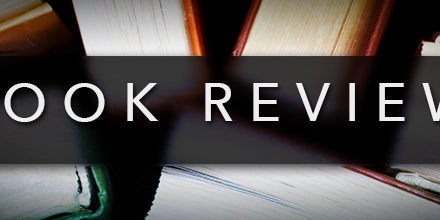
Recommended Resources on Exodus, Part 2: Resources on the Decalogue (Timothy Raymond)
As part of my perpetual sermon series through Exodus, I’m currently preaching through the Ten Commandments and so far have had a glorious time proclaiming the gospel from the Decalogue. (In case anybody is curious, here’s a link to all the sermons thus far.) In preparation for this part of the series, I read several books on the Ten Commandments and below are my comments on a few resources which you may find helpful (for part 1 of this series, go here).
 Toward Old Testament Ethics (Ethics – Old Testament Studies), by Walter C. Kaiser, Jr.
Toward Old Testament Ethics (Ethics – Old Testament Studies), by Walter C. Kaiser, Jr.
As the title suggests, this is not a study of exclusively the Ten Commandments but of the ethics of the first 77.2% of the Bible. But as you’d imagine, the Decalogue functions as the backbone of those ethics, and much of this book is devoted to expounding the meaning and implications of the Ten Commandments. I find myself in great sympathy to Kaiser’s approach to Old Testament ethics but I really wish he had done more by way of contemporary application. This is a good resource to have on the shelf, simply as a one-stop comprehensive exposition of all the ethical texts in the Old Testament. But if you’re looking for how this shapes and guides life today, you’ll need to look elsewhere.
 The Ten Commandments: Interpretation: Resources for the Use of Scripture in the Church, by Patrick D. Miller
The Ten Commandments: Interpretation: Resources for the Use of Scripture in the Church, by Patrick D. Miller
This is the best book I’ve ever read that I simply cannot recommend. It’s by far the best book I’ve read on the Decalogue and one of the most informative books I’ve ever read of any kind. It’s essentially a whole-Bible biblical theological organized around the Ten Commandments and excels in exegesis, biblical theology, theological reflection, and contemporary application. The author’s learning is astounding and has left no stone unturned in exploring the meaning and implications of Decalogue. At nearly 500 pages, it is truly a comprehensive study. Furthermore, the author writes in a very engaging and easy-to-read style. Why then can’t I recommend it? The author, who is a professor of Old Testament Theology at Princeton Theological Seminary, is theologically liberal and of all places, this is most problematic when it comes to contemporary ethics (for example, Miller actually defends same-sex marriage on pages 292-295). I really wish there were a sort of “revised evangelical version” of this book, for it’s incredibly helpful about 95% of the time. But since the remaining 5% is explosive heresy, I can’t commend it to any except the most careful of pastors who have the time and patience to wade through a minefield.
The Ten Command ments: Ethics for the Twenty-First Century (New American Commentary Studies in Bible and Theology), by Mark F. Rooker
ments: Ethics for the Twenty-First Century (New American Commentary Studies in Bible and Theology), by Mark F. Rooker
Truth be told, I was rather disappointed by this book. It’s very, very good, but far too brief to be completely helpful to the preacher. Its strength is in its careful exegesis of the text of Exodus 20 in light of its ANE context. Its weakness is that it includes almost nothing by way of contemporary application. It’s really more designed for the Bible translator than the pastor. While it’s a useful tool for understanding the meaning of the text, it must be supplemented with other resources which explore the gospel, lifestyle, ecclesiastical, and worldview implications of the Decalogue.
The Prager University Videos on the Ten Commandments
If you’re not familiar with Dennis Prager, he’s perhaps the most erudite social commentators on the radio today. He’s also a very conservative Jew who unashamedly believes the Torah comes from God. In these eleven 5-minute videos, Prager explores the massive implications of the Ten Commandments on society, politics, culture, and the family. I don’t think I’ve seen a better resource for exploring the worldview implications of the Decalogue. And they’re completely free! However, since they’re coming from a Jewish perspective, there’s no gospel here, and Prager adopts a distinctively Jewish interpretation of the text in a couple places. I’d heartily recommend you use these videos for preaching the Decalogue, but supplement them with good evangelical resources.
Lord willing, in my next installment in this series I intend to recommend a few exegetical commentaries on Exodus. After that, I hope to follow up with posts on commentaries for preachers and possibly some resources on the Tabernacle. If there are resources on Exodus (i.e., lectures, commentaries, books, etc.) you’d recommend or would like me to review, leave them in the comments below and I’ll consider including them.
Timothy Raymond is an editor for Credo Magazine and has been the pastor of Trinity Baptist Church in Muncie, Indiana since April 2006. He received his MDiv from the Baptist Bible Seminary of Pennsylvania in 2004 and has pursued further education through the Christian Counseling and Educational Foundation.
